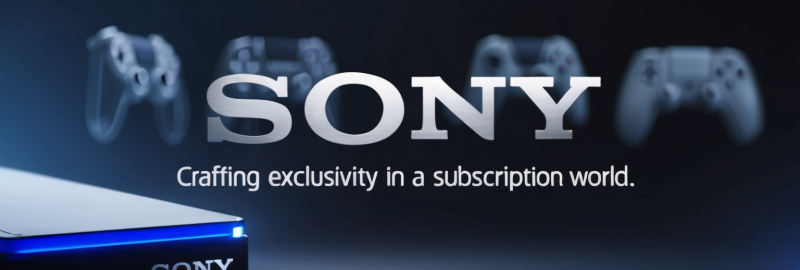
Sony has made its position clear regarding its approach to releasing new titles on its PlayStation Plus service. The company is choosing to stick with a philosophy that sees the initial launch of premium first-party games reserved exclusively for their debut on the console, rather than thrusting them into the subscription service from day one. This distinctive strategy is rooted in a deep commitment to ensuring that every title receives the focused investment and development time that their acclaimed studios demand. While competitors have adopted immediate release models with their subscriptions, Sony believes that the timing of introducing titles through PS Plus should be measured and deliberate to maintain the quality and the distinctive exclusivity that fans have grown accustomed to.
Unwavering Strategic Vision
Sony's decision not to release its premium first-party games simultaneously on PS Plus at launch is a testament to its unwavering strategic vision. The company stands by a long-held philosophy that dedicates premier titles to a staged release, ensuring that they receive the attention and initial fanfare they deserve. This deliberate approach stems from the recognition that immediate access via a subscription service could dilute the impact of a game's debut and its market value. By avoiding day-one releases on PS Plus, Sony reinforces a commitment to providing gamers with a full, uninterrupted experience upon launch. This strategy is Here's a rephrased version that maintains the same context: "beyond simply mirroring the company's" confidence in its core products but also a rejection of one-size-fits-all market trends.
Preserving Investment Cycles
At the heart of Sony's approach lies the concept of investment cycles that power creative excellence. The company insists that launching new games into the subscription box immediately upon release would disrupt the virtuous cycle that fuels the evolution of its gaming portfolio. Every investment in studio time and creative resources is intricately linked to a sustainable model where commercial success reinvests into future projects. Sony contends that altering its release strategy to mirror competitors might compromise the level of innovation and quality that gamers have come to associate with its titles. By holding back from day-and-date releases on PS Plus, Sony preserves the growth cycle, fostering an environment where its studios can continue to thrive and push the boundaries of gaming.
Comparative Industry Models
Industry comparisons often highlight Microsoft’s strategy of launching first-party games simultaneously on its Xbox Game Pass. In contrast, Sony has championed a different model that underscores exclusivity at launch. This divergence stems from differing philosophies about how to balance immediate market capture with long-term brand strength. Microsoft’s approach seeks to saturate the market quickly with a wealth of new titles accessible to all subscribers, whereas Sony selects a measured pathway that prioritizes initial quality and later accessibility. By choosing not to integrate its flagship games into PS Plus on day one, Sony aims to protect its creative investments while still exploring subscription service opportunities in a manner that complements its brand identity and the expectations of its core audience.
Innovative Business Approaches

Sony’s strategy reflects a nuanced perspective on how best to marry innovative business models with traditional principles of game development. Recognizing the allure of subscription services for many segments of the gaming community, Sony has opted to explore a hybrid model that combines exclusivity with later inclusions. This pathway allows them to occasionally introduce titles via PS Plus after a designated period, ensuring that titles eventually reach broader audiences without compromising the initial experience. The company’s method underscores a clear understanding that innovation in business strategy does not necessarily require abandoning long-established practices that have proven successful. Instead, it is about finding a balanced approach that harmonizes new trends with time-tested investment philosophies.
Producer's Perspective in a Shifting Landscape
Behind Sony’s strategic decisions is a profound understanding of the creative process from the producer’s perspective. Game development is a multifaceted endeavor where resource allocation, creative vision, and production timelines play critical roles. Sony’s executives have consistently noted that introducing games to the subscription service immediately upon their release could potentially disrupt this delicate balance. By spacing out the timeline between exclusive launches and eventual integration into PS Plus, the company allows its producers ample time to optimize the game’s full potential. This method ensures that each title is launched with the level of polish and refinement that both the creators and the audience expect from a PlayStation game, reinforcing the reputation built over years in the industry.
Timely Market Engagement
The timing of game releases is a crucial aspect of Sony’s overall strategy. Rather than embracing a day-one release model that might compromise the introductory impact of a new title, the company advocates for waiting to release select titles on PS Plus until the optimal moment. Sony’s approach is based on the belief that games have a lifecycle that benefits from a phased introduction. Initially, the launch event is reserved for a dedicated audience who actively seek out new experiences, creating buzz and anticipation during the critical early stages. Later, by introducing games into the subscription service after the title’s primary market launch, Sony effectively renews interest and reaches new parts of its audience who may have missed the initial release, thus extending the game’s longevity on the platform.
Third-Party Collaborations and PS Plus Strategy
While Sony maintains a reserve for its own exclusive launches, it shows agility by collaborating with third-party developers for day-one releases on PS Plus. This strategic move ensures that the platform continues to offer fresh and diverse content without diluting the brand’s signature exclusivity for first-party games. Third-party titles provide an avenue to attract new subscribers and present a vibrant catalog of games that complement the core offerings. The collaboration highlights Sony's ability to balance its proprietary interests with broader industry trends and consumer expectations. By opening the door to well-regarded third-party games on the day of their release, Sony secures a dual advantage—promoting both innovative content and strategic market penetration that benefits the overall PlayStation ecosystem.
Subscription Service Dynamics
The landscape of subscription services reflects a dynamic interplay between immediate accessibility and cyclical engagement. Sony’s stance on refraining from day-one access for its own games on PS Plus illustrates a careful consideration of this balance. The subscription model is an evolving part of the gaming industry, characterized by its ability to introduce new players to established franchises and to revitalize interest in older titles. Sony recognizes that while early access might seem advantageous in the digital age, it is not always conducive to preserving the long-term value and creative dedication invested in new releases. By strategically timing its PlayStation Plus enhancements, Sony not only maximizes the impact of its game launches but also ensures that the service remains a viable channel for attracting and retaining dedicated gamers.
Audience Expansion and Platform Reach
Sony’s approach plays a critical role in shaping how its titles reach diverse segments of the gaming community. Instead of pushing new first-party games directly onto PS Plus, the company chooses to leverage the service as a platform to broaden its audience at a later time. This method enables Sony to capture early adopters who are eager to experience a new title at launch while also drawing in casual gamers through the subscription service once the initial excitement subsides. Such a dual-phase release strategy permits a more expansive reach, ensuring that the game remains relevant across different demographics over time. This careful planning underscores Sony's deep understanding of audience behavior and demonstrates its commitment to sustained engagement across the lifecycle of its titles.
Long-Term Studio Commitments and Resource Allocation
Integral to Sony’s business philosophy is a commitment to long-term support of its development studios. This dedication is reflected in its decision to handle first-party game launches as standalone events rather than merging them with immediate subscription service releases. Prioritizing substantial resource allocation and strategic investment, this approach aims to ensure that each title is given the best possible conditions for development and success. By delaying the integration of their marquee games into PS Plus, Sony mitigates the risk of overextending its studios’ capacities and diluting the focus on quality. The deliberate strategy reinforces a culture of precision and care, ensuring that every game receives the nuanced attention it requires. In doing so, Sony continues to nurture an ecosystem where sustainable creative processes drive long-term success and innovation in gaming.